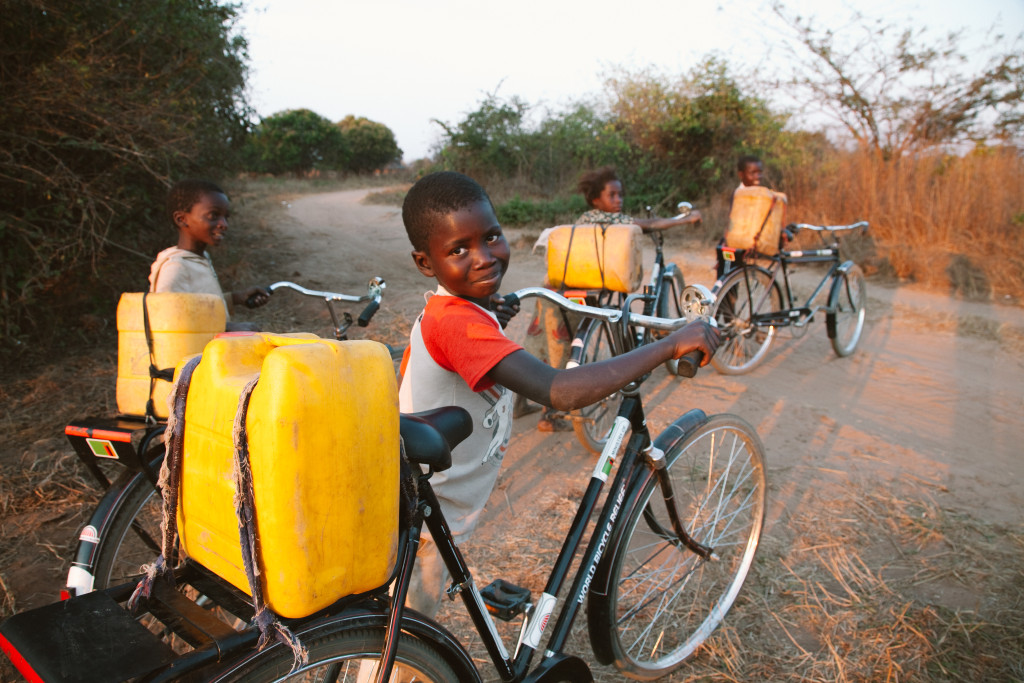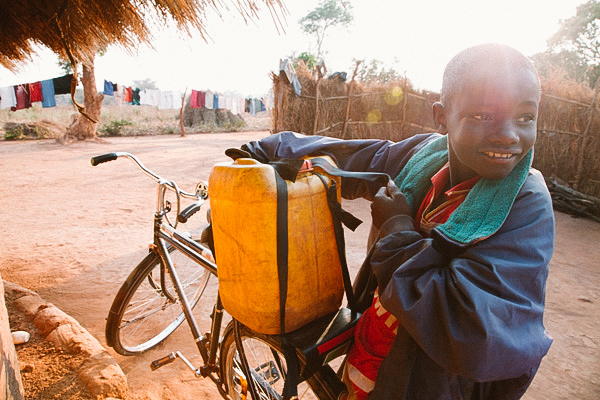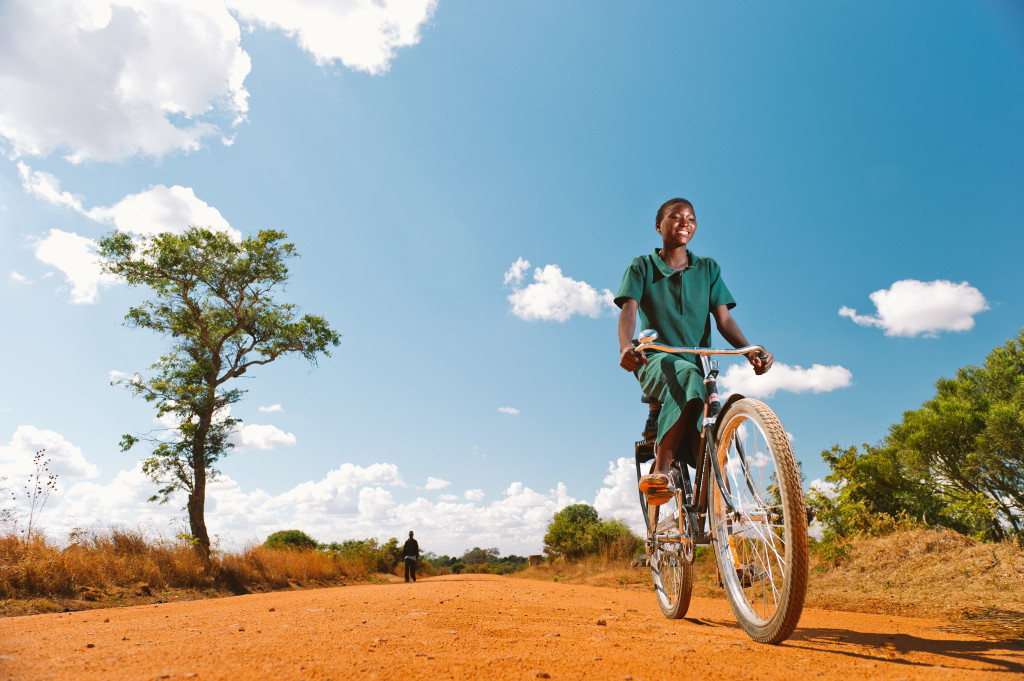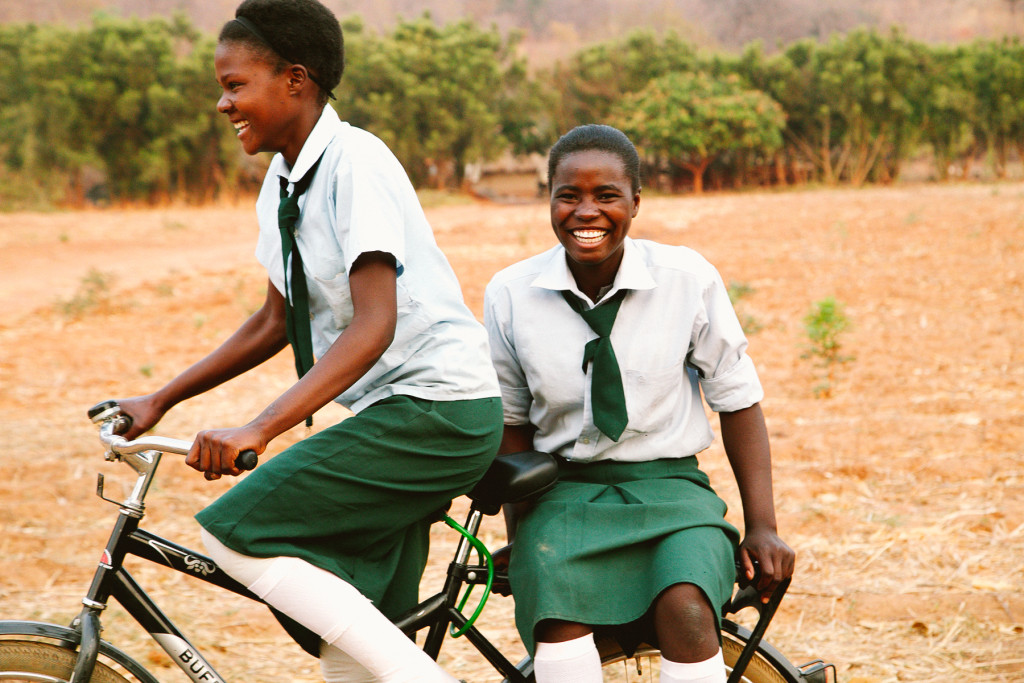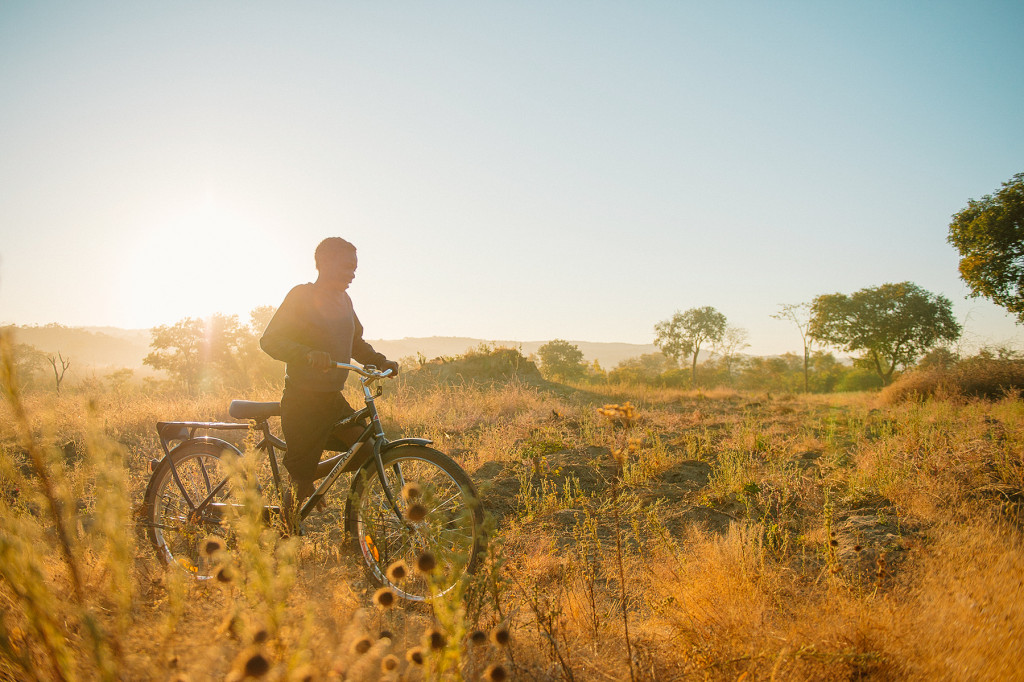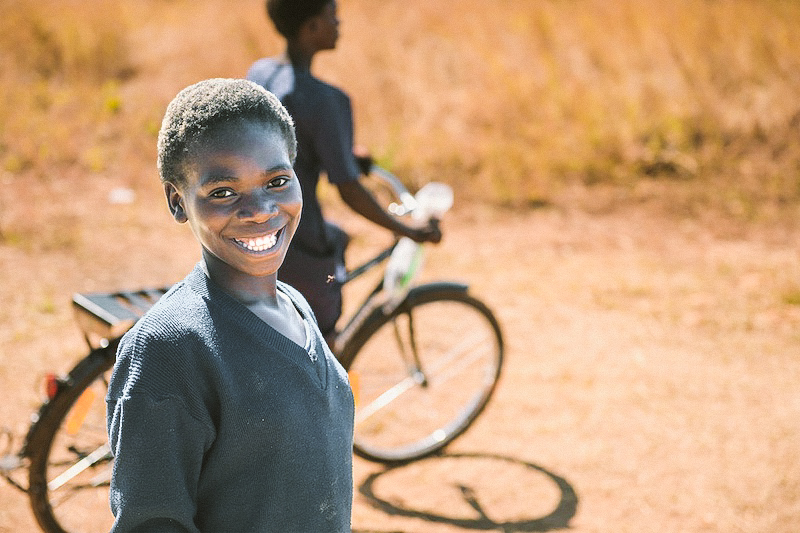How The Power Of A Bicycle Gives Mobility And Possibility
We all want to make a difference, and the easiest way to do that is by connecting activism with a habit. In my introductory column, I said, “If you love bicycling, get involved with a charity that uses bikes as their vehicle for good”. That example came to mind because I love bikes and it was an easy pun. I knew of a few charities that distributed bicycles within their respective communities, but I never could have imagined the international impact of the gift of mobility. And in a perfect marriage of passion and compassion, I learned about World Bicycle Relief through a party at my local bike shop.
It started in late December of 2004, when the Indian Ocean tsunami devastated ten countries from east Africa to Thailand. In addition to the staggering death toll, the wake of destruction left behind for the survivors seemed insurmountable. People around the world were looking for ways to help those who had also suffered great personal loss, who had lost their infrastructure and their livelihood. F.K. Day, founder of bicycle component company SRAM, and his wife Leah, a documentary photographer, traveled to Sri Lanka to survey the local relief efforts and understand what they could do to help. It quickly became clear that mobility was a major problem for those living in the wake of the tsunami. And bikes were a sustainable solution. Day experienced one of those enviable a-ha moments where lifelong passion and real need meet at an impossibly perfect crossroads, and World Bicycle Relief was born. After delivering nearly 25,000 bikes in Sri Lanka in conjunction with World Vision, the Days were ready to create a full-time organization dedicated to bringing wheels to those who need them most.
The genesis of WBR was a visible cause-and-effect event—a tsunami captured the world’s attention, the death toll was shocking and highly visible, the survivors were left to pick up the pieces—but its biggest impact is in areas with less visible but equally-urgent needs. After returning to Chicago, F.K. and Leah were left thinking about the impact bicycles had on one community.
The silent savannahs, remote villages, and impassible urban areas that keep people from accessing their basic needs are the settings that so desperately need mobility. In 2008 the Days were encouraged to take their work to Southern Africa after learning that every two weeks the realities of rural regions claim as many lives as that 2004 tsunami. The problems are diffuse, the deaths silent. Many could be prevented by access to healthcare, educational, and entrepreneurial opportunities. Bikes address all of these problems by allowing people to go further, faster. Owning a means of transportation means less money spent on hired transit, more consistency in attending school or work, and a sense of possibility. Mobility is as literal as it is metaphorical, and providing the means to move provides a tangible hope.
So how do Central Time and local activism fit into this international mission? It all started with a question.
“Who should I thank for this free beer?”
It’s the kind of question everyone hopes to be able to ask. When the bike mechanics-turned-bartenders at Mellow Johnny’s Bike Shop in Austin said, “World Bicycle Relief!” I knew I liked these guys. When I stopped by their booth and heard more about their mission, I found myself in love.
Alongside all of the gorgeous promotional materials explaining the goals and impact of WBR was a bike that could eliminate every bicycle mechanical woe I’ve ever had. But this bike isn’t for those of us looking for less flat tires on our commute. It’s an engine for economic and cultural empowerment. Our glass and pothole-ridden commutes are tame compared to the conditions the ‘Buffalo Bicycle’ is built for. It’s designed to endure the rugged conditions of regions that are sorely lacking in transit infrastructure while carrying heavy loads of water, goods, or extra passengers.
World Bicycle Relief epitomizes thinking globally and acting locally. They’ve got bike design and distribution down to a science, have created jobs in the communities they’ve entered by educating bicycle mechanics and builders, and they raise funds by letting people have fun. From a race series in WBR’s hometown to supported century rides across the country to events put on by prominent professional cyclists, they connect bike culture to conscious culture. Surrounded by fellow bike nuts at Mellow Johnny’s, the shift from reminiscing on the day’s news at Cyclocross Nationals over craft beer and beautiful machinery to exploring the world-changing possibilities provided by the Buffalo Bicycle was natural and inevitable.
Josh Kline, the friendly guy behind the booth last weekend, rides for Team WBR Indiana. They’re a bunch of dudes who like wearing spandex and riding bikes as often as possible. But they’ve taken that passion for skin-tight clothes and masochism and used it for fundraising and spreading awareness. That’s something I can relate to in a big way. After talking to Josh, I’ve begun working on creating a WBR Team here in Austin.
What struck me the most about World Bicycle Relief was the perfect balance they’ve achieved between effective charity abroad and participatory movement right here at home. They’ve created a sustainable model for distribution, maintenance, and fundraising by training members of communities to keep the Buffalo Bikes on the road and building a bike that works so well that other organizations buy them to distribute as part of their own respective missions.
They’ve also seen great cooperation between many competitive bike brands. Both Specialized and Trek, the two leading bike brands in the US, support World Bicycle Relief through various efforts. And while SRAM and Zipp are leaders in the support and resources they provide, Mavic wheels, a direct competitor of Zipp recently held a fundraising effort to support WBR. Compassion has a unique way of uniting competitors. While saving grams of weight on the next generation of Tour bikes is serious business, saving lives and sharing the joy of bikes is much more important.
Even if you don’t get as excited about riding bikes as I do, the beauty of taking something that gets you out of bed before the sunrise, that you daydream about while at work, and turning it into a means of changing the world is something that we can all aspire to and appreciate.
Photos: World Bicycle Relief
LEARN + CONNECT
Learn more about World Bicycle Relief
Connect via Facebook and Twitter
FROM THE EDITOR
At Conscious, we are inspired by remarkable people, and so we set out to tell stories that highlight real human interactions and human dignity. You can read more stories like this when you Subscribe.

